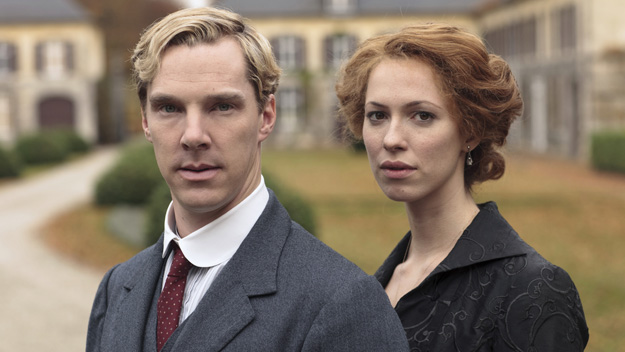“They could not have picked a worse person to review this.”
Those were the reassuring and entirely accurate words from my girlfriend after finishing Parade’s End.
I’m the guy who has managed to fall asleep during Downton Abbey, Pride and Prejudice, and some third British period piece that’s making me drowsy just thinking about it.
And the beginning of Parade’s End had me worried I’d need to load up on Adderall ahead of time.
The five-part BBC-HBO miniseries billed as “spanning from the Edwardian era to the chaos and destructions of World War I” stars Benedict Cumberbatch as Christopher Tietjens—a man so good, he frustrates everyone around him to the point of madness.
[one_half][quote type=”center”]The five-part BBC-HBO miniseries billed as “spanning from the Edwardian era to the chaos and destructions of World War I” stars Benedict Cumberbatch as Christopher Tietjens—a man so good, he frustrates everyone around him to the point of madness.[/quote][/one_half]
And I mean just about everyone, whether it’s government officials frustrated that he won’t tweak the numbers, his wife (played by Rebecca Hall) he married because it was the right thing to do, or even the woman everyone is convinced must be his mistress—a young suffragette Valentine Wannop, played by Adelaide Clemens (who you may remember as Catherine from The Great Gatsby.)
To a certain degree, this even extends to the viewers. Tietjens understands the upcoming conflict that will ensnarl most of Europe in the next few years with a thoroughness that likely comes from narrative hindsight.
The best way to define Tietjens is he’s the reverse Walter White. While viewers find themselves rooting for someone who should by all means be a villain in Breaking Bad, I found myself becoming more and more frustrated with Tietjens’ stoic goody-goodiness. The fact that between Ford Madox Ford’s original 1920s novels and this production a character was crafted to create this much frustration is a testament to how good this is.
Following his journey from proper member of the social hufflebruffle to the foxholes of World War I is like watching a square peg try to fit in a round hole, only to have both become squircles.
I thoroughly enjoyed watching this miniseries, especially toward the latter parts. For people who aren’t into the usual pomp and circumstance of Victorian/Edwardian England, hang in there. It’ll be worth it by the end.
But how to watch it?
Do you have HBOGO? Then don’t bother with the DVD release. You’re just paying to have it on disc with zero special features.
The Blu-Ray does promise an NPR interview with writer Tom Stoppard, which might be worth it for Shakespeare In Love fans.
If you don’t already have HBO, then the $25 being asked for on Amazon right now is a very fair price for something that will keep you engaged for five hours.
As a side suggestion for a very Benedict Cumberbatch weekend, pick this up, along with Star Trek Into Darkness and then get caught up on Sherlock on Netflix before season 3 starts, eventually.
